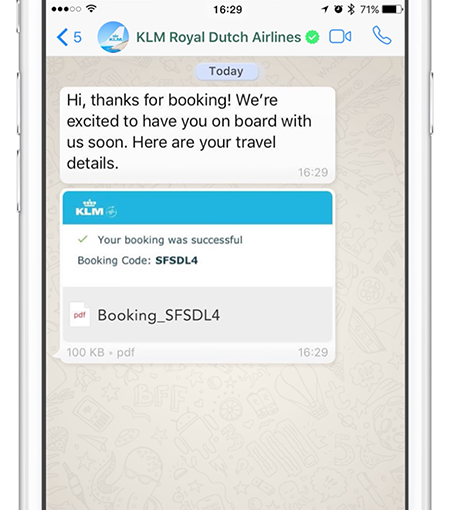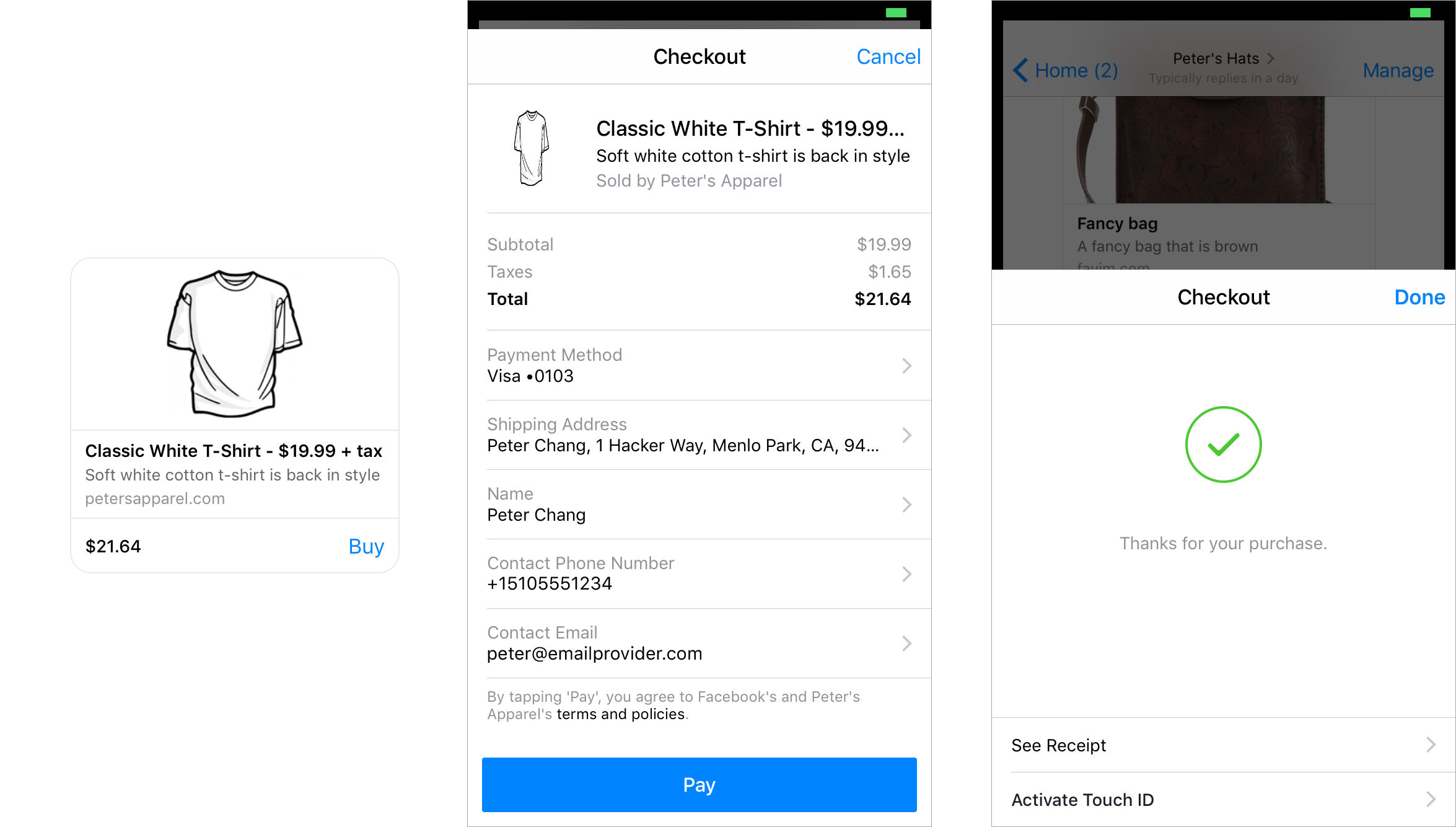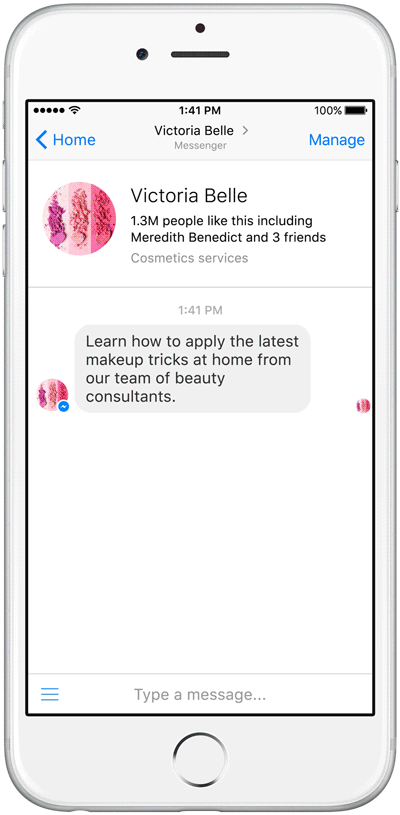What Can You Expect From The New Era Of Conversational Commerce And Social Media Payments?
An exciting new era of conversational commerce and social media payments is almost here! Discover what it will bring, how to make the most of it and get ahead of your competition.

The way we communicate with businesses is changing at the speed of light. How fast exactly? Well, let’s look at a quote from a guy that invested in Facebook, Linkedin, Airbnb, Discord and more.
“Today from my smartphone I can talk to my friends and coworkers in so many ways — calling, texting, snapping, messengering, tweeting, slacking, and more. But if I want to talk to a business nearby, I usually have just one option — find their phone number and call them. Social media is going to redefine the way how we talk to businesses.” — Josh Elman, Greylock Partners, 2015
This quote is only 2 years old! Today no one would say that there is just one option to talk to businesses. Almost every business has its own Facebook page and is reachable via Facebook Messenger. A lot of businesses are active on Twitter, and you can also reach plenty of them via WhatsApp and similar apps.
And yet this is only the beginning!
How social media is blurring the line between personal and business communication
Social media is redefining how customers communicate with businesses and vice versa. Suddenly we are using the same tools and channels to chat with friends and to reach out businesses. This is blurring the line between personal communication and conversational commerce, and progressive businesses are already using it to their advantage.
Nowadays it’s possible to provide customer information in a very unobtrusive, yet still very effective and visible way.
Let’s look at KLM, a Dutch airline company. When you book a flight, you have the option to opt-in for their Messenger, Twitter, WhatsApp or WeChat services. Then you can choose to receive your boarding pass, flight info and flight updates via the selected channel. Not just that, if you have any questions you can immediately ask them without leaving the chat window. And often you’ll receive an instant reply.

This feature simplifies a lot of tasks and is very convenient in a lot of situations. Let’s say your postal service sends you a notification that your package will arrive when you’re not at home. You can reschedule the delivery in a matter of seconds. You don’t have to worry about missing the delivery guy anymore and your reply also makes the delivery service more efficient.
New communication options are also drastically improving customer support. Supposing you have a question, but it’s not really an urgent matter, you can simply send a message via WhatsApp or Messenger while chatting with friends. If your question is fairly common, you’ll receive an automated answer in an instant. Otherwise you’ll have to wait until someone replies. This is still better than waiting on the phone line to get in touch with an agent, as you’re able to do other things in the meantime.
And when you’ll urgently need an agent’s help, the waiting time will be shorter, because most of the common questions will get asked and answered through other channels. Everybody wins.
The Future: Paying via social media will make our lives simpler
This is only the tip of the conversational commerce iceberg.
Social media payments will soon become a global standard. Companies are always looking to enhance their user experience, and when it comes to payment methods nothing beats a fast and convenient one. With almost half the world already on social media, it seems only natural to enable money transfers directly from people’s chat windows.
There are 3 major areas where we see it happening first:
Invoicing
A lot of businesses are using social media as their main communication channel. They reach out to their customers via their pages and their customers can reach back via messages or comments.
An increasing number of freelancers and other professionals are also using messaging apps and social media to keep in touch with their clients. Often it’s the most convenient way.
Consequently, it would make a lot of sense to start issuing invoices for services or products and accepting payments via messaging apps and social media. Why not pay through the same channel, you’re using the most anyway?
Western Union seems to agree as they already connected with Viber, a messaging app that has 745 million unique users around the globe. Western Union enables Viber users from the United States, United Kingdom, Ireland and France to send money to around 200 countries worldwide. You can send the money within Viber’s chat interface and it’s usually available to the receiver in a matter of minutes.
We expect to see more possibilities like this very soon.
Services and subscriptions
Subscription based services are on the rise. They range from Netflix to gym membership and food box deliveries.
However, many people don’t like their subscriptions to automatically renew. The alternative is to visit all the different sites, which can be a pain.
Social media payments offer an elegant solution. You can be reminded that your subscription is going to expire via a message and then you can renew it without leaving the chat box.
When it comes this far, all your subscriptions will be neatly arranged in your inbox and we are sure social media platforms will provide a dashboard where you’ll be able to track payments and overview all the services you’re subscribed too.
Ecommerce
Online stores are already moving to social media and you can expect to see more of that in the near future. Social media platforms already provide everything a shop needs — easy access to your target audience, product catalogue options and payment solutions.
As a customer, you will be able to discover products you like in a gallery or through a chat with a bot. Once you decide what you want to purchase, you’ll be able to pay on the spot. No more redirecting to ecommerce pages, just a few clicks in your chat window and you’re done.
Right at this moment, Facebook is rolling out a feature that will allow us to pay for products directly in the Facebook Shop. For now, this feature is only available in the US.

Source: BuildThis
Facebook is also in the Beta stage of testing a solution, that will accept payments from users through chat bots.

It won’t be long, before conversational commerce is in full swing with the help of social media payments. But payment options aren’t the only thing that is going to change.
Social media will enable a whole new of marketing personalization
Purchasing over social media will also skyrocket the creation of personal offers we talked about in our previous article.
Customers will be able to select their preferred brands and receive relevant offers without even opening the e-store. It will help avid young shoppers not to miss any special deals. On the other hand, it will also help people that don’t like shopping to see only goods and services they are interested in and spend less time browsing the store.

Ultimately, social payments and conversational commerce are on the rise. They will benefit both businesses and customers. Customers will save time on trivial tasks and purchases and businesses will get to know their customers better, send them more relevant offers and establish better connections.
An exciting new era is coming up for online and offline businesses that are willing to adapt. Conversational commerce will strive to make every service as consumer convenient as possible. Together with social payments they will offer an amazing opportunity for big and small businesses.
And that’s why we developed Sendbee. To help ambitious and progressive businesses make a smooth transition to up and coming world of conversational commerce and social payments.
We are truly excited to see what it will bring, and we hope you are too!
